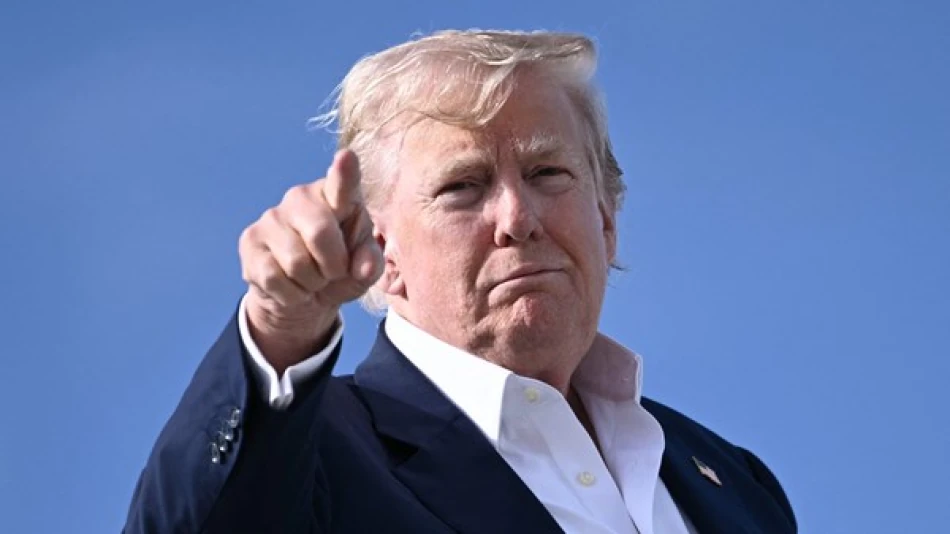
Trump Warns of Imposing Fresh Sanctions on Russia
Trump Escalates Ukraine Pressure with 10-Day Russia Ultimatum
President Donald Trump has dramatically shortened his timeline for resolving the Ukraine conflict, giving Russia just 10 days to reach an agreement or face new sanctions. The compressed deadline marks a significant escalation in diplomatic pressure and signals Trump's impatience with the pace of negotiations since taking office.
The Shrinking Timeline
Speaking to reporters on Tuesday, Trump confirmed the new deadline when asked about his ultimatum: "Ten days from today." This represents a sharp reduction from his previous timeframes—he had initially suggested giving Russia 50 days to end the conflict, then floated "10 to 20 days" on Monday before settling on the shorter period.
"I will set a new final deadline. There's no need to wait. We're not seeing any progress being made," Trump declared, reflecting growing frustration with diplomatic efforts.
Strategic Implications of the Ultimatum
High-Stakes Diplomacy
The 10-day deadline creates immense pressure on all parties involved in the Ukraine conflict. Such compressed timeframes in international diplomacy are rare and typically signal either genuine urgency or a calculated move to force rapid decision-making. Trump's approach mirrors his business background of using tight deadlines to accelerate negotiations.
Sanctions as Leverage
The threat of additional sanctions adds weight to Trump's ultimatum. Russia already faces extensive international sanctions related to the Ukraine conflict, but new measures could target previously untouched sectors or individuals. The effectiveness of this approach will largely depend on whether existing sanctions have created sufficient economic pressure to motivate Russian concessions.
Historical Context and Precedent
Trump's ultimatum strategy differs markedly from traditional diplomatic approaches that typically allow months or years for complex international conflicts to resolve. Previous U.S. administrations have generally favored longer negotiation timelines, viewing rushed diplomacy as potentially counterproductive in territorial disputes.
The approach does align with Trump's previous negotiation style during his first presidency, where he frequently used deadline pressure in trade disputes with China and renegotiating NAFTA. However, applying similar tactics to an active military conflict represents a significant escalation in stakes.
Market and Economic Considerations
Financial markets will likely monitor this deadline closely, as the outcome could significantly impact global commodity prices, particularly energy and agricultural products. A resolution could ease supply chain pressures and reduce inflation concerns, while failure to reach an agreement and subsequent new sanctions could further destabilize markets.
European allies, many of whom depend on Russian energy imports despite existing sanctions, face particular economic exposure to any escalation in punitive measures.
The Reality of 10-Day Diplomacy
Resolving a complex territorial conflict within 10 days presents enormous practical challenges. Meaningful agreements typically require extensive consultation between negotiating parties and their respective domestic constituencies. The compressed timeline suggests Trump may be seeking a preliminary framework rather than a comprehensive final settlement.
The ultimatum also raises questions about what specific actions would satisfy Trump's definition of "progress." Without clear benchmarks, both Russia and Ukraine may struggle to understand exactly what steps would prevent new sanctions from taking effect.
Most Viewed News

 Layla Al Mansoori
Layla Al Mansoori






